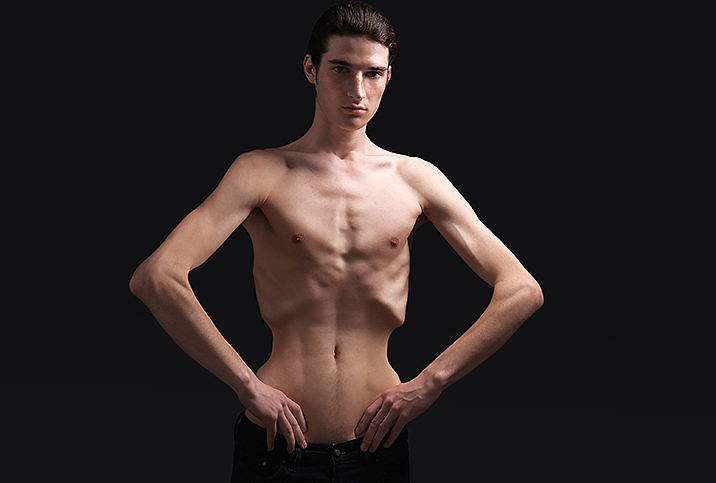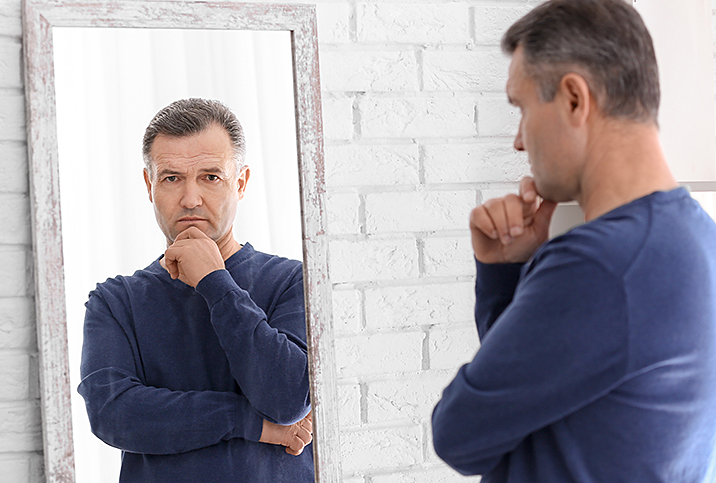Robert Pattinson Speaks Out Against Unrealistic Male Body Standards

Showered with accolades such as "Hottest Actor" and "Top Hunk of 2008" early in his career, Robert Pattinson isn't a person you'd expect to be insecure about his body.
And it turns out he isn't—not really, anyway. In an interview with ES Magazine, the former teen heartthrob revealed that he never struggled with body image issues, but is not immune to the "insidious" pressure placed on men in Hollywood to look a certain way.
"It's very, very easy to fall into that pattern as well, even if you're just watching your calorie intake, it's extraordinarily addictive," Pattinson said in the story published Jan. 19. "You don't quite realize how insidious it is until it's too late."
The actor confessed to trying every fad diet in existence to meet perceived male body standards; he once ate nothing but potatoes for two weeks, calling it a detox.
"Just boiled potatoes and Himalayan pink salt," he said. "Apparently, it's a cleanse…You definitely lose weight."
Detoxes—or detoxification diets—and cleanses generally involve short-term periods of fasting or strict eating designed to help remove toxins from your body. While trendy, detoxes and cleanses are backed by only minimal research, and existing studies are based on flawed science, according to the National Center for Complementary and Integrative Health.
This isn't the first time Pattinson has criticized the entertainment industry for its unrealistic body demands. In a 2020 GQ cover story, he joked that he refused to work out to prepare for his titular role in Matt Reeves' "The Batman."
"I think if you're working out all the time, you're part of the problem," Pattinson told GQ. "You set a precedent.
"No one was doing this in the '70s. Even James Dean—he wasn't exactly ripped," he added.
In this latest interview, however, Pattinson revealed that his flippant attitude toward working out returned to haunt him.
"I got in so much trouble for saying that I don't work out, even from my trainer, who was like, 'Why would you say that?'" he said.
Pressure to look a certain way isn't felt solely by Top Hunk winners from 2008 or any other year. An estimated 30 percent to 40 percent of men are anxious about their weight, and up to 85 percent are dissatisfied with their muscularity, according to data published in the journal Body Image in 2022.
Body image issues can lead to a variety of mental health problems, including anxiety, depression, disordered eating and muscle dysmorphia, an extreme preoccupation with having a muscular physique.
Historically, men have been conditioned to suppress mental health issues, and body image problems have been associated with women, often leaving male body negativity out of the conversation.
"I think male body image, in general, is something that needs more attention because of all the increased pressures that are placed on men to achieve this lean and muscular ideal," Meghan Gillen, Ph.D., an associate professor of psychology at Penn State Abington, told Giddy in a 2022 story. "There's been an assumption all along about women dealing with this pressure, which is true, and men being somewhat protected from it, but I'm not sure that's the case anymore."
If you feel like you're struggling with body image issues or any mental health condition, see a therapist. If you don't have a therapist you see regularly, taking the first step isn't always easy. Video visits have become a viable option for most people, and more mental health professionals have added them as a service. Giddy telehealth makes it easy to get connected to a qualified healthcare professional who can help with a variety of conditions, including mental health.


















